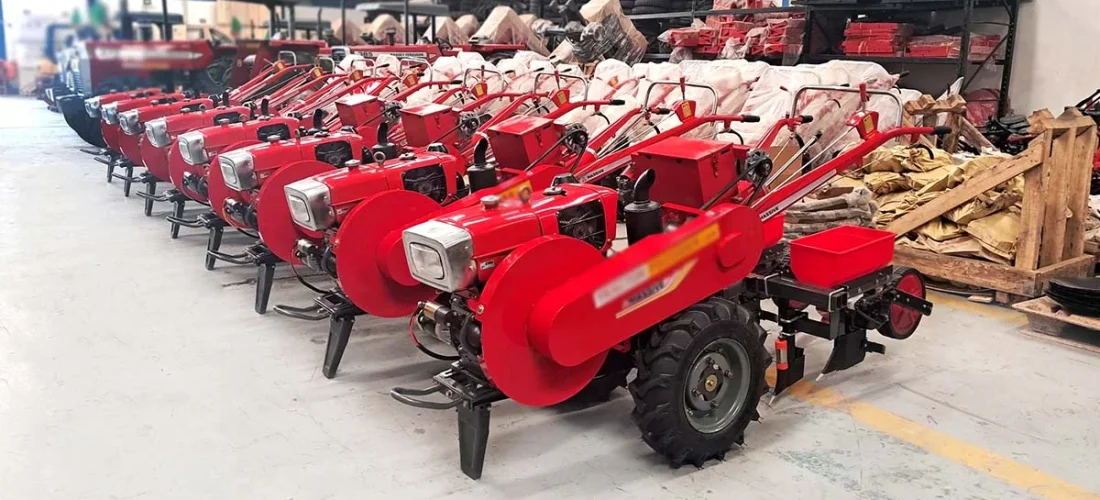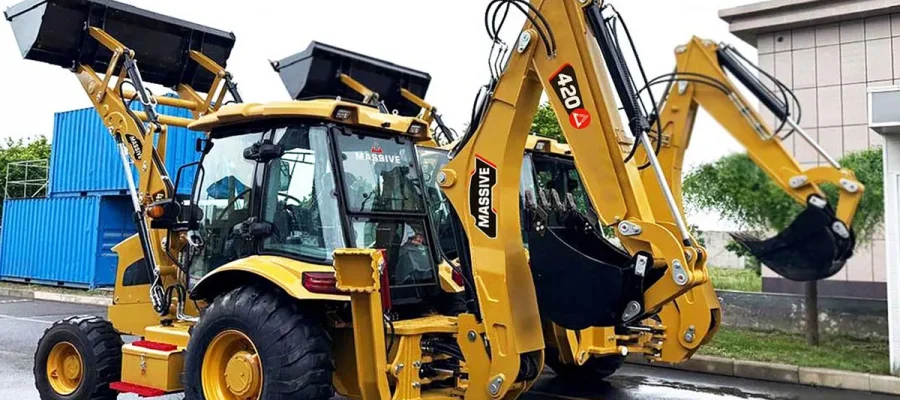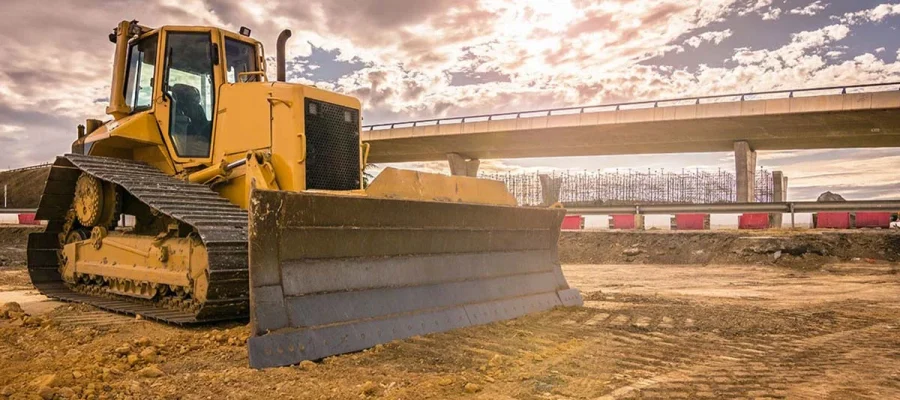
Agriculture is the backbone of Nigeria’s economy, engaging over 70% of its labour force. Yet, the sector faces significant challenges, including labour shortages, low productivity, and limited adoption of modern farming techniques. Enter walking tractors, a revolutionary piece of machinery that is changing the fortunes of Nigerian farmers. Compact, efficient, and cost-effective, these agricultural tools are paving the way for a new era in farming.
In this blog, we’ll explore the growing popularity of walking tractors in Nigeria, their role in boosting agricultural productivity, and why they are becoming a preferred choice for small and medium-scale farmers across the country. Whether you’re a farmer looking to modernise your operations or an importer interested in tapping into this demand, you’ll find everything you need here.
What Are Walking Tractors?
Walking tractors, also known as two-wheel tractors or power tillers, are lightweight and versatile agricultural machines designed for small to medium-scale farms. Unlike larger tractors, walking tractors are operated by manually steering them while walking behind. Despite their compact size, they can perform a variety of farming tasks when equipped with the right attachments, including ploughing, harrowing, planting, and even irrigation.
Why Walking Tractors Are Perfect for Nigerian Farms
- Small farm sizes: The majority of Nigeria’s farmers operate on small plots of land, where larger tractors are either impractical or too expensive to operate. Walking tractors strike the perfect balance between affordability and functionality.
- Flexibility: These machines are ideal for Nigeria’s diverse terrain, including uplands and lowlands, where their manoeuvrability makes them extremely valuable.
- Cost-effectiveness: Walking tractors are less expensive to purchase, maintain, and repair compared to full-sized tractors, making them an accessible investment for farmers with limited resources.
- Ease of operation: With basic training, farmers can quickly learn to operate walking tractors, reducing the learning curve and boosting productivity almost immediately.
How Walking Tractors Are Transforming Farming in Nigeria
Boosting Agricultural Productivity
Labour shortages, coupled with time-consuming manual farming methods, have hindered productivity for years. Walking tractors are game-changers in this scenario, enabling farmers to prepare larger areas of land in less time and with less physical exertion. For example, a walking tractor can plough up to an acre of land in a few hours, a task that would take days if done manually.
This efficiency means farmers can cultivate more land during planting seasons, increasing their crop yields and profitability.
Reducing Labour Costs
Agriculture in Nigeria is often labour-intensive, but walking tractors drastically reduce the need for manual labour. By replacing human-powered farming tools like hoes and cutlasses, farmers can allocate their time to other income-generating activities while also reducing costs associated with paying additional labourers.
Supporting Diversified Farming
Walking tractors are not just limited to ploughing. Their versatility allows them to support multiple agricultural activities across various stages of farming. Here are a few examples:
- Planting: Attachments like seed drillers ensure uniform seed dispersal, improving crop growth.
- Water management: Powered irrigation pumps can help efficiently distribute water, especially in arid regions.
- Post-harvest processing: Equipment like threshers can turn walking tractors into multipurpose machines capable of helping with tasks beyond farming.
Enhancing Rural Development
The widespread adoption of walking tractors contributes to rural development by creating opportunities for mechanised cooperatives. Communities can pool resources to purchase these machines, making modern farming techniques more accessible to smallholders. Additionally, local entrepreneurs can build businesses around renting out walking tractors, thereby creating employment opportunities in rural areas.
Key Features to Look for in Walking Tractors
When purchasing a walking tractor, it’s essential to consider features that align with your farming needs. Here are some critical elements to evaluate:
- Engine power: Choose a machine with the appropriate horsepower (HP) for your farming activities. Higher HP models are ideal for heavy-duty tasks.
- Attachments: Look for compatibility with multiple attachments such as ploughs, harrows, seeders, and weeders.
- Fuel efficiency: Select a model that balances power and fuel consumption well to keep operational costs manageable.
- Durability: Choose a tractor made of high-quality materials to ensure longevity, especially for Nigeria’s challenging farming conditions.
- Ease of maintenance: A low-maintenance design will reduce downtimes and repair costs.
Walking Tractors for Sale in Nigeria by Tractor Corner Nigeria
If you’ve been researching walking tractors, chances are you’ve come across Tractor Corner Nigeria, a trusted name in agricultural machinery. Here’s why they are leading the market in walking tractors:
- Wide Variety: Tractor Corner Nigeria offers a range of walking tractors tailored to various needs, whether you need one for small-scale vegetable farming or large-scale rice cultivation.
- High-Quality Products: All tractors are sourced from reputable manufacturers to ensure reliability and durability.
- Affordable Pricing: Thanks to their commitment to empowering Nigerian farmers, Tractor Corner Nigeria provides competitive prices that lower the barrier to entry for mechanisation.
- Expert Advice: Not sure which machine is right for you? Their team of experts can help you select a machine that meets your farming needs.
- After-Sales Support: Tractor Corner Nigeria provides robust after-sales services, including maintenance, spare parts, and operator training.
Explore their collection today and take the first step towards modernising your farm.
Overcoming Barriers to Adoption
Despite their numerous benefits, adopting walking tractors in Nigeria isn’t without challenges. High upfront costs, limited awareness, and access to financing are among the barriers farmers face. Addressing these challenges will require concerted efforts from stakeholders, including:
- Government support: Subsidies and grants can make walking tractors more affordable to smallholder farmers.
- Awareness campaigns: Educating farmers about the benefits and operations of walking tractors can encourage adoption.
- Access to finance: Microfinancing solutions tailored to smallholder farmers can help overcome the challenge of high initial costs.
Revolutionising Nigerian Agriculture One Step at a Time
Walking tractors are more than just machines; they are enablers of growth, productivity, and empowerment for Nigerian farmers. Their ability to combine affordability with functionality makes them the ideal solution for modernising small-scale agriculture in Nigeria. With trusted suppliers like Tractor Corner Nigeria making these valuable tools accessible, the future of Nigerian farming looks brighter than ever.
Whether you’re looking to scale your farm operations or venture into farming equipment import, the rise of walking tractors in Nigeria is an opportunity worth seizing. Start your transformation today by exploring the options available with Tractor Corner Nigeria.


